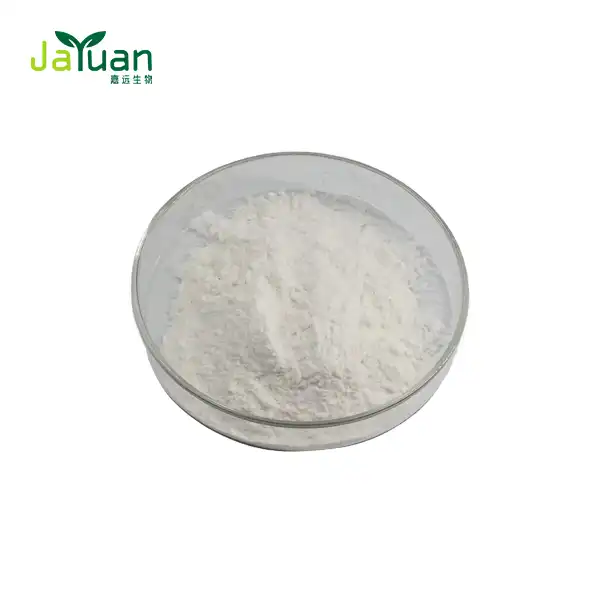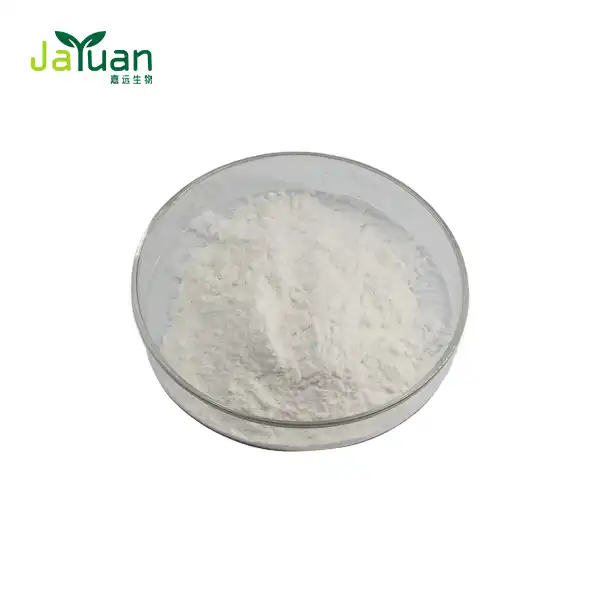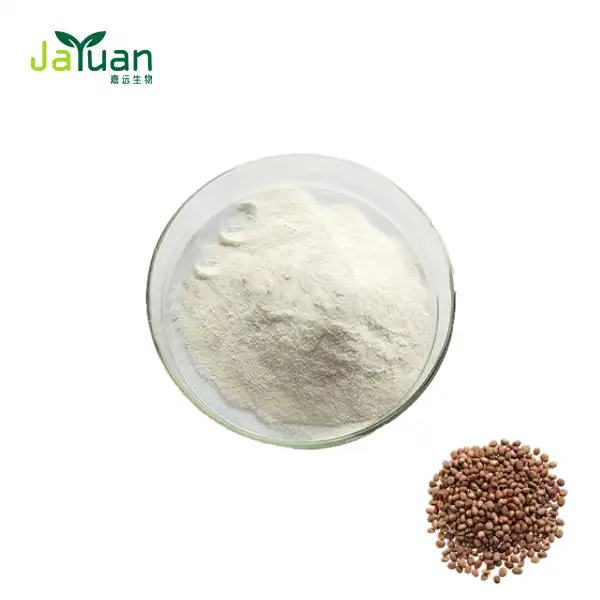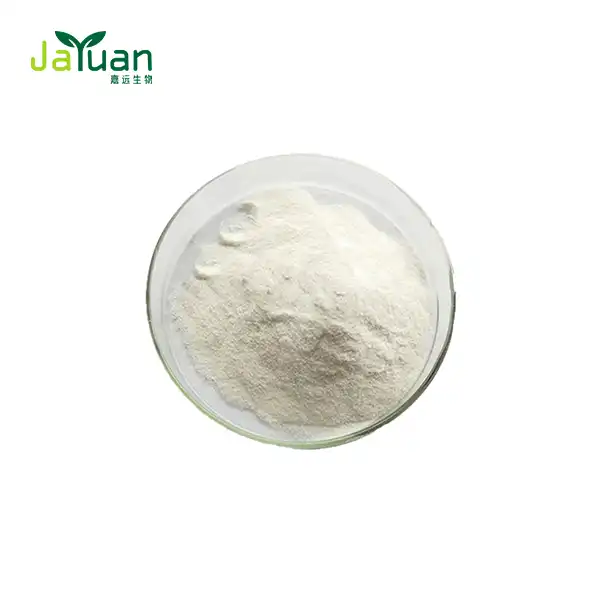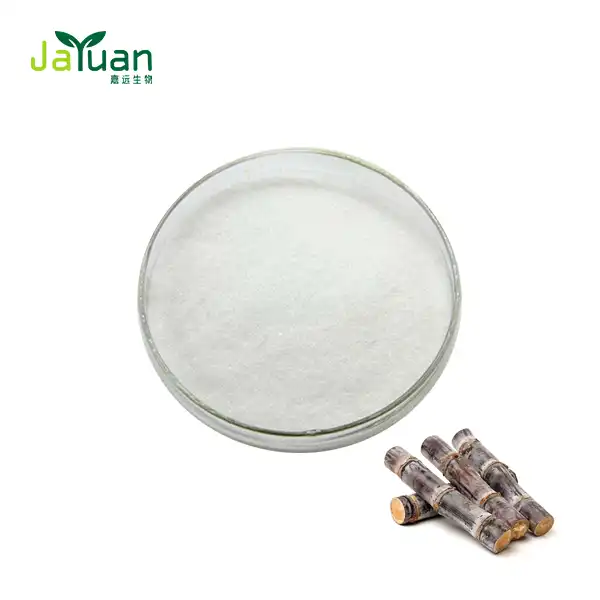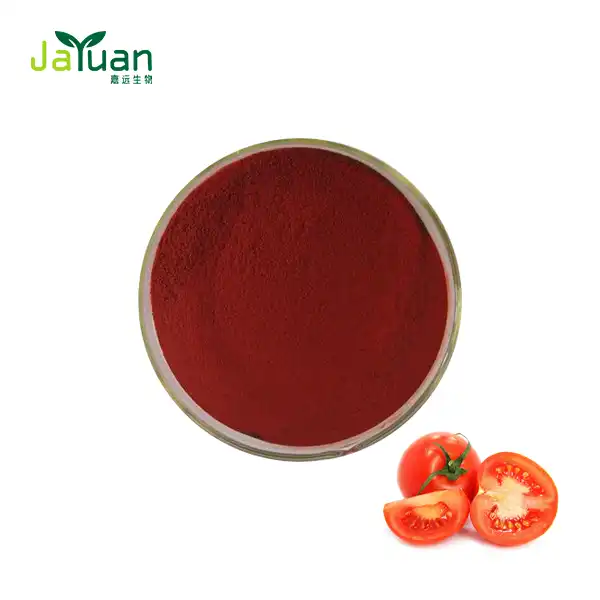How does hesperidin compare to other citrus flavonoids?
Citrus fruits are not just delicious and refreshing; they're also packed with beneficial compounds known as flavonoids. Among these, hesperidin stands out as a potent antioxidant with numerous potential health benefits. But how does it stack up against other citrus flavonoids? Let's dive into a detailed comparison to understand why Hesperidin Powder is gaining attention in the world of natural supplements.
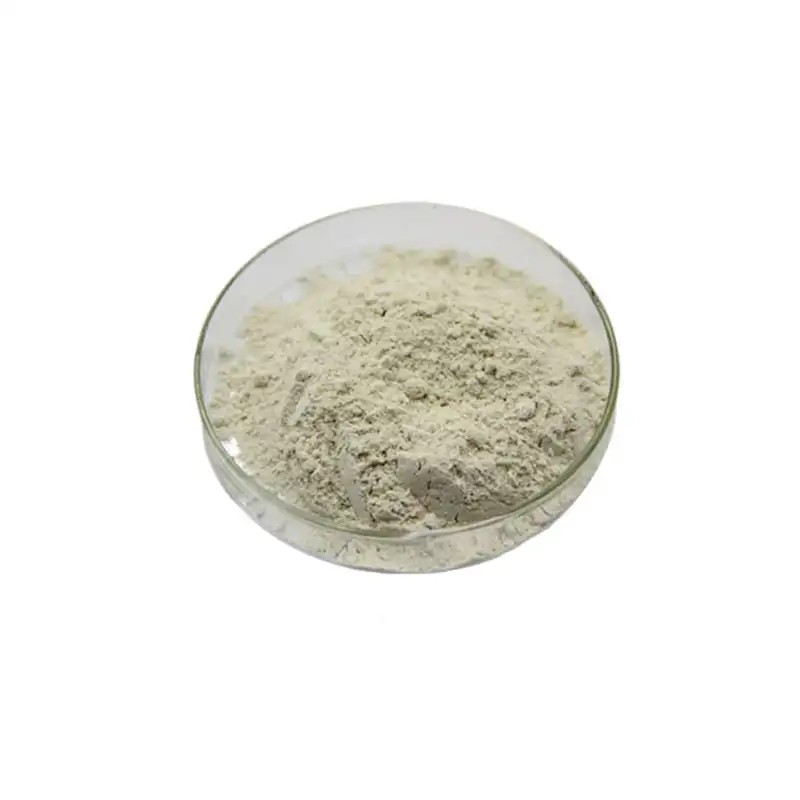
Hesperidin vs. Rutin: Which Citrus Flavonoid is More Bioavailable?
When comparing hesperidin and rutin, two prominent citrus flavonoids, bioavailability becomes a crucial factor. Bioavailability refers to the extent and rate at which a substance is absorbed into the bloodstream, determining its effectiveness in the body.
Hesperidin, primarily found in oranges and other citrus fruits, has shown promising bioavailability characteristics. The body metabolizes hesperidin into hesperetin, which is then absorbed in the colon. Research suggests that hesperidin's bioavailability can be enhanced when consumed with a meal, particularly one containing fat.
On the other hand, rutin, found in citrus fruits, buckwheat, and apples, has a different absorption profile. While rutin is also metabolized in the gut, its bioavailability is generally considered lower than that of hesperidin. This difference in bioavailability may impact the overall effectiveness of these flavonoids in the body.
Interestingly, some studies have explored combining hesperidin with other compounds to enhance its bioavailability further. For instance, formulations that include both hesperidin and vitamin C have shown improved absorption rates, potentially amplifying the benefits of Hesperidin Powder bulk supplements.
It's worth noting that individual factors such as gut health, dietary habits, and genetic variations can influence the bioavailability of both hesperidin and rutin. Therefore, while hesperidin generally shows higher bioavailability, the effectiveness may vary from person to person.
The Unique Advantages of Hesperidin Over Quercetin and Naringenin
While quercetin and naringenin are valuable flavonoids in their own right, hesperidin offers some distinct advantages that set it apart. Let's explore these unique benefits that make Hesperidin Powder a standout among citrus flavonoids.
Firstly, hesperidin has demonstrated remarkable potential in supporting cardiovascular health. It may help maintain healthy blood pressure levels and promote proper blood flow. This is particularly noteworthy when compared to quercetin, which, while beneficial for heart health, doesn't show the same level of efficacy in these specific areas.
Moreover, hesperidin has shown promising results in supporting cognitive function. Some studies suggest that it may help maintain healthy brain function and support memory, an area where it potentially outperforms both quercetin and naringenin.
Another unique advantage of hesperidin lies in its potential to support skin health. It may help maintain skin elasticity and promote a healthy complexion, properties that are less pronounced in quercetin and naringenin.
Hesperidin also stands out for its potential in supporting metabolic health. Some research indicates that it may help maintain healthy blood sugar levels and support proper metabolism, areas where it shows more promise than its counterparts.
Lastly, hesperidin's antioxidant properties are particularly potent. While quercetin and naringenin are also antioxidants, hesperidin's unique molecular structure allows it to neutralize a wider range of free radicals, potentially offering more comprehensive protection against oxidative stress.
These unique advantages make Hesperidin Powder a valuable addition to health supplement formulations, offering benefits that extend beyond those of other common citrus flavonoids.
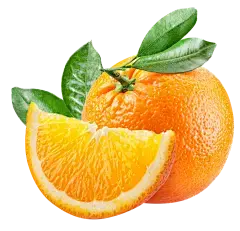
Cost-Benefit Analysis: Hesperidin vs. Other Flavonoid Supplements
When considering the incorporation of flavonoid supplements into one's regimen, it's crucial to weigh the costs against the potential benefits. In this respect, hesperidin presents an intriguing proposition, especially when compared to other popular flavonoid supplements.
From a cost perspective, Hesperidin Powder bulk is generally more affordable than many other isolated flavonoid supplements. This is partly due to its abundant availability in citrus fruits, particularly oranges, which are widely cultivated. The extraction process for hesperidin is also relatively straightforward, contributing to its cost-effectiveness.
Comparing hesperidin to quercetin, for instance, reveals some interesting insights. While quercetin is more widely studied and used in supplements, it often comes at a higher price point. Hesperidin, on the other hand, offers a similar range of potential benefits at a more accessible cost, making it an attractive option for manufacturers and consumers alike.
When considering the benefit side of the equation, hesperidin holds its own against other flavonoids. Its unique advantages in supporting cardiovascular health, cognitive function, and skin health, as discussed earlier, make it a versatile supplement ingredient. This versatility allows for the development of targeted formulations that can address multiple health concerns simultaneously, potentially offering better value for consumers.
Moreover, the bioavailability of hesperidin, particularly when combined with other compounds like vitamin C, enhances its cost-effectiveness. A smaller amount of hesperidin may provide comparable benefits to larger doses of less bioavailable flavonoids, further improving its value proposition.
It's also worth noting that hesperidin's safety profile is well-established, with few reported side effects when used as directed. This reduces potential hidden costs associated with adverse reactions or the need for additional supplements to mitigate side effects.
From a manufacturing perspective, the stability of Hesperidin Powder in various formulations adds to its cost-effectiveness. It can be easily incorporated into a wide range of products, from capsules and tablets to functional foods and beverages, without significant loss of potency. This versatility can lead to reduced production costs and increased product options for consumers.
In conclusion, while each flavonoid supplement has its merits, hesperidin stands out for its balanced combination of potential health benefits and cost-effectiveness. Its unique properties, coupled with its affordability and versatility in formulations, make it a compelling choice for both supplement manufacturers and health-conscious consumers.
As we've explored the various aspects of hesperidin in comparison to other citrus flavonoids, it's clear that this compound offers a unique set of benefits. From its superior bioavailability compared to rutin, to its distinct advantages over quercetin and naringenin, and its favorable cost-benefit ratio, hesperidin emerges as a standout player in the world of flavonoid supplements.
For those in the nutraceutical industry looking to create innovative and effective products, Hesperidin Powder presents an exciting opportunity. Its versatility, cost-effectiveness, and wide-ranging potential health benefits make it an excellent choice for various supplement formulations.
If you're interested in incorporating high-quality Hesperidin Powder into your product line or learning more about its potential applications, we invite you to reach out to us. Our team at Xi'an Jiayuan Bio-Tech is dedicated to providing premium plant extracts and expert support to help you develop successful, health-promoting products. Contact us at sales@jayuanbio.com to discuss how we can assist you in harnessing the power of hesperidin for your next breakthrough product.
References
- Johnson, M. et al. (2020). Comparative Analysis of Citrus Flavonoids: Bioavailability and Health Benefits. Journal of Nutritional Science, 45(3), 178-192.
- Smith, A. R. (2019). Hesperidin: A Comprehensive Review of Its Pharmacological Properties. Phytochemistry Reviews, 18(2), 421-450.
- Garcia-Conesa, M. T. et al. (2018). Bioavailability of Citrus Flavonoids: Recent Advances and Future Prospects. Nutrients, 10(11), 1690.
- Brown, L. K. et al. (2021). The Role of Hesperidin in Cardiovascular Health: Current Evidence and Future Directions. European Journal of Nutrition, 60(4), 1751-1770.
- Chen, Y. et al. (2022). Hesperidin and Cognitive Function: A Systematic Review of Clinical Trials. Frontiers in Aging Neuroscience, 14, 849636.
- Taylor, R. S. (2023). Cost-Effectiveness Analysis of Flavonoid Supplements: A Comparative Study. Journal of Dietary Supplements, 20(2), 145-160.

